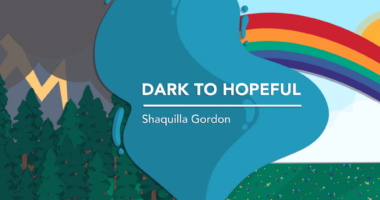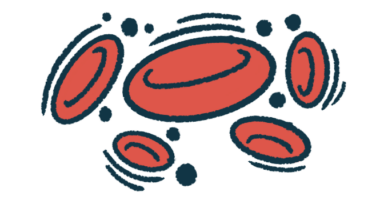What I would do if I didn’t have PNH
Competing on reality shows is a dream deferred for this columinst

One of my favorite hobbies is watching competitive reality television shows. “Survivor” and “The Amazing Race,” both on CBS, are two of my guilty pleasures to pass the time. I’ve been a fan of them for many years and dreamed of one day being a contestant. However, after my diagnosis of paroxysmal nocturnal hemoglobinuria (PNH) four years ago, being on a competition show is no longer realistic.
Since 2016, “Survivor” contestants live on the islands of Fiji and attempt to “outwit, outplay, and outlast” the other players. I started watching the show with my family 20 years ago and have repeated my “this is why I deserve $1 million” speech — which is part of the show — many times. But right when I was considering applying to be a contestant, I started to develop PNH symptoms.
Once I began receiving Soliris (eculizumab) infusions, I knew my dream was officially over. It’d probably be quite difficult to receive treatment while stranded on an island without electricity.
A part of me had hoped that if I could switch my medication to Ultomiris (ravulizumab-cwvz), I’d have enough time between treatments to compete. I eventually did switch to Ultomiris, but now I giggle at the thought that I’d even considered playing “Survivor” with PNH. I doubt my doctor or the show’s producers would clear me medically to compete. Nor would I, as the game’s required exertion and lack of food make it impossible for me.
‘The Amazing Race’
Racing around the world experiencing different cultures and doing things I’d never have the opportunity to do otherwise sounds, well, amazing. “The Amazing Race” is another show I enjoy, and it saddens me that competing for its $1 million prize is not an option for me.
In addition to the “Survivor” obstacles — being medically cleared and figuring out the timing of my treatment schedules — I don’t think it’s realistic to think that a PNH patient could keep up with the race’s fast pace. I lack the stamina for that, and I frequently experience shortness of breath.
Often when I watch the show, I picture myself completing the various tasks, such as detours and roadblocks, and I think, “Oh, that one looks easy.” But a task in one recent episode had me questioning what I would do.
The task was skydiving. I’ve never been interested in jumping out of a plane and falling thousands of feet. So as I normally do when watching the show, I asked myself, “What would I do?” I thought about how, because of my PNH, I’ve been doing things for years that I don’t want to do. I’ve had countless blood draws, a blood transfusion, a bone marrow biopsy, gallbladder removal surgery, and much more — none of which I wanted to do.
When I reflect on my life with PNH and compare it with the demands of these shows, I imagine my medical treatments and procedures as my challenges — but instead of a $1 million reward, my prize is a healthy life. Of course, I’d love the money, but feeling healthy is a prize worth fighting for.
I’ll never know if I would’ve applied to be a contestant had PNH not entered the picture. It’s disheartening that the choice was taken from me. But I’ll continue to be a fan and watch from home, and I might even mention the possibility of competing to my doctor. Hey, a girl’s gotta dream, right?
Note: PNH News is strictly a news and information website about the disease. It does not provide medical advice, diagnosis, or treatment. This content is not intended to be a substitute for professional medical advice, diagnosis, or treatment. Always seek the advice of your physician or other qualified health provider with any questions you may have regarding a medical condition. Never disregard professional medical advice or delay in seeking it because of something you have read on this website. The opinions expressed in this column are not those of PNH News or its parent company, Bionews, and are intended to spark discussion about issues pertaining to paroxysmal nocturnal hemoglobinuria.








